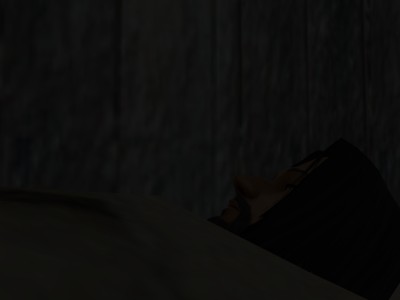
Egelric lay in bed with his eyes wide open. It was the first time he had awoken in the narrow bed by the lake since he had fallen ill.
He had spent the previous day working, and it was quite late in the night when he had come to the lakeshore, for he had meant to sleep at the work site with the men. He had endured their company as long as he was able. He had desperately wanted to be alone, and it was only fear of what he might find at the lake that kept him away until after midnight—or fear of what he would become there.
Fortunately, he had been so exhausted after his day’s work that he had fallen asleep at once. He had not yet fully recovered from his illness. Last night he had not even sat a moment outside to look over the lake. But now he was awake.
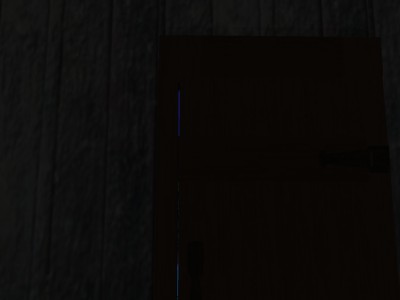
He could tell that it was close to sunrise, for the door was rimmed with dim violet light. He could also hear the chattering of the birds and an occasional splash in the lake. The lake and woods were alive now. He was not alone, and it was not the same.
He had found nothing to tell him whether what he remembered had been a dream, and nothing to make him dream again.
He knew some of it had been a dream. He hadn’t truly been in the belly of a bear. He hadn’t truly walked on the moon. But what had he done? All anyone knew was that he had disappeared for a few days in the dead of winter, and then had come wandering through Nothelm gate in the middle of the night, half delirious with fever.
Weeks passed before he had reached a point where all of his thoughts were under his control. But he still could not bring order to the thoughts that had accumulated during that time.
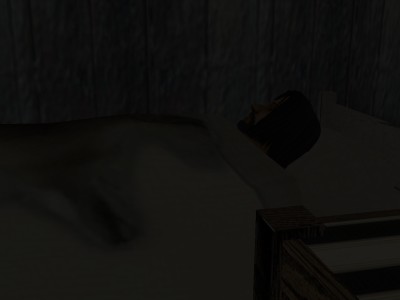
All he knew for certain was that he had lost his knives: his grandfather’s long knife and the small knife he had from Colban. He could not bear the loss of either, and he had lost both. He must have lost them in his feverish wandering. Unless…
Unless all of the rest was true. Had he walked out onto the ice? Had he fallen in? Had he been saved by an elf? The elf had taken his knives from him—it would explain that loss.
And had the elf come to him in his bed in the castle, and brought the water out of his lungs, and allowed him to breathe again? It would explain his sudden recovery.
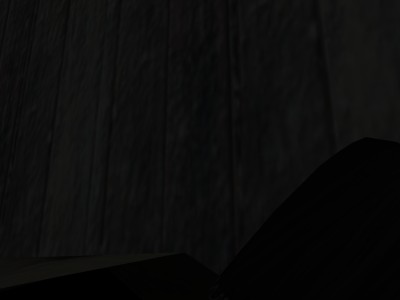
He had almost asked Baby about the elf. He’d hoped she would be able to tell him something that would show him whether it had been real or another dream. But he remembered that the elf had made him promise not to tell, and in exchange had told him about his son.
His son! Oh, he had to believe that that part was true. His son, who liked his baths, and had a stuffed rabbit, and who sucked his two fingers when he was sad.
He rolled over onto his side and clasped his hands between his knees. It was so little, but it was something. If it wasn’t true, then it was worse than nothing: it was a loss. He could not stop thinking about a little, dark-haired boy who sucked his two fingers.
He threw off the blankets and got up. If it was dawn, then it was not too early to go up the hill and prepare for the day. He had nothing to eat here, and he would spend some time talking with the men. They were nervous around him now. He wondered whether they thought him mad.

He dressed quickly in the cold, pulled on his cloak, and opened the door.
The water was brighter than the sky, as it was twice a day, just before sunrise and just after sunset. The sky still had the look of night overhead; the dawn had not yet poured into the steep valley in which the long lake lay.
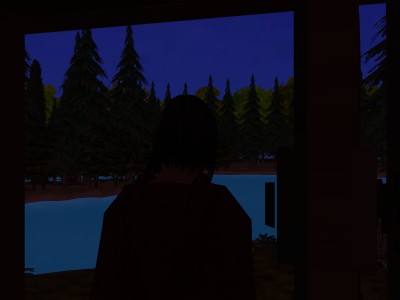
All was still cloaked in shadow, and it was possible that he would not have seen the bundle at his feet even if he had looked down. He only noticed it when he took a step forward and kicked it with his boot. He leapt back in surprise. It was heavy, and it clanked when it fell.
He bent to inspect it. It was long and narrow, wrapped in a piece of pale leather and bound with a cord. He quickly untied the cord and folded back the leather to reveal a pair of knives: his grandfather’s long knife and the small knife he had from Colban.

He stood and stared down at them. What did this mean? Someone had returned his knives to him. He had not lost them in the woods. Had one of the men stolen them, and had second thoughts? Or was it the elf?
He kneeled again and tucked the small blade back into his boot, and then took up the dark, heavy knife, but he laid it down again when he saw a spot of white beneath it. It had been lying on a piece of birch bark—a piece of birch bark that had been cunningly folded into a tiny envelope. This was the answer.
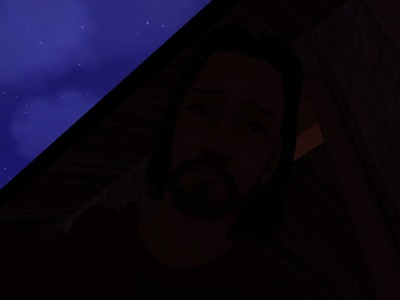
He took it up and opened one of the flaps. Inside the white was a spot of dark. He gently pulled out a small lock of hair that was curled into a ring and tied with a piece of thread. It was finer and softer, but it was as black as his own.







How wonderful that must be for him to find! I like that elf, even if he is breaking rules.